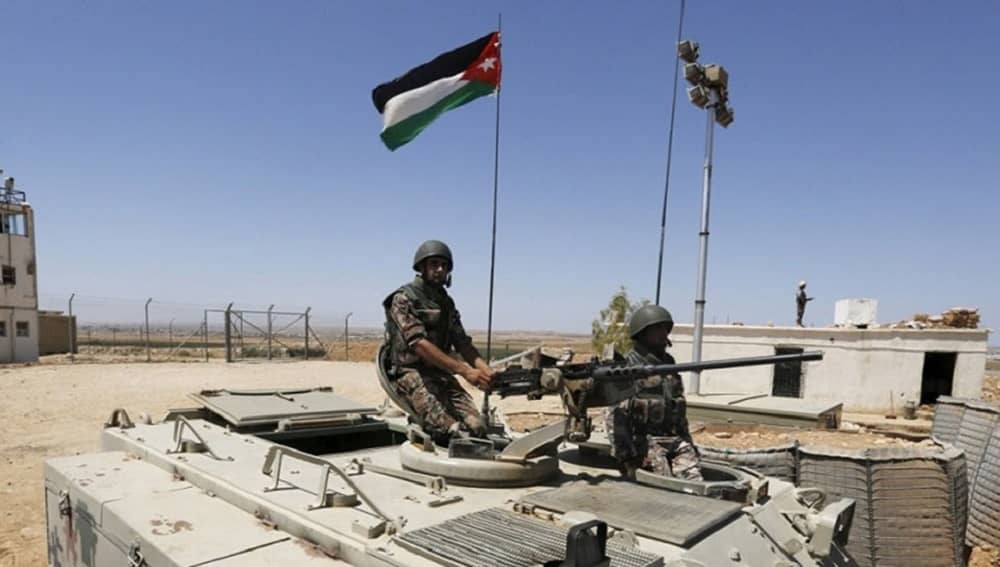

This critique stems from Jordan’s active role in combating drug trafficking activities linked to Hezbollah, a significant player in regional politics and conflicts.
Jordan’s strategic importance in the region is underscored by its geographical position next to Palestine and its proximity to the western coast of the Persian Gulf. Historically, during the Iran-Iraq War, Jordan’s strategic decisions, such as assisting Saddam Hussein despite its economic challenges, have also been a point of contention.
The current strain in relations, however, is largely attributed to Jordan’s decisive actions against drug smuggling operations conducted by Hezbollah across Syria and Lebanon. On January 4, Jordan executed airstrikes inside Syria targeting warehouses and hideouts of Iranian-backed drug traffickers, as reported by Reuters citing regional intelligence sources. This move was seen as a direct challenge to Hezbollah and, by extension, the Iranian regime which has purportedly benefited financially from these illegal activities.
Hezbollah has reportedly used drones to smuggle drugs, specifically Captagon pills, a practice that has been significantly hampered by Jordan’s crackdown. This has resulted in substantial financial losses for Hezbollah and Tehran, with profits from drug trafficking estimated to be in the billions of dollars.
The #Iranian regime denies involvement in the killing of #US personnel in Jordan. Watch and judge why scrutiny is warranted as its highest-ranking officials have repeatedly expressed intent to do so over the years. pic.twitter.com/OYeAuwnw2N
— NCRI-FAC (@iran_policy) January 30, 2024
Western countries, along with UN agencies, US officials, and the European Union, acknowledge that drug and arms smuggling in the region supports not only Hezbollah but also backers of the Bashar al-Assad government in Syria. A crucial element in this illicit trade is the Fourth Division of Syria, commanded by Maher al-Assad, brother of Bashar al-Assad, who facilitates the main trade routes for Captagon. Moreover, the use of the Latakia port, partially controlled by Iran, for trafficking, has also been noted.
Analysts from Chatham House estimate the value of the illicit production and sale of Captagon to be around $5 billion a year, a sum that significantly supports the Assad regime and Hezbollah. Regional media and reports have suggested that Captagon is used by combatants in various conflicts, including members of Hamas during their attacks, and by security forces in Iran to suppress uprisings, thereby contributing to regional instability and violence.
#Iran News in Brief
At a joint press conference on January 29, #UnitedStates Secretary of State Antony Blinken and NATO Secretary General Jens Stoltenberg condemned the drone attack on U.S. forces in #Jordan and blamed the Iranian regime for backing the militias responsible for… pic.twitter.com/YfrrBkT1H4— NCRI-FAC (@iran_policy) January 30, 2024
Jordan has been forthright in condemning Iran’s aggressive actions, highlighting the strategic significance of the Al-Tanf Base near Syria and Iraq, the largest US military base in the area. Jordan has also intercepted Iranian missile and drone attacks targeting Israel, reinforcing its stance against Iran’s military ambitions.
This ongoing conflict underscores the complex interplay of political, military, and economic factors shaping the Middle East, with Jordan playing a pivotal role in countering Iran’s influence and activities in the region.

MEK Iran (follow us on Twitter and Facebook), Maryam Rajavi’s on her site, Twitter & Facebook, NCRI (Twitter & Facebook), and People’s Mojahedin Organization of Iran – MEK IRAN – YouTu







